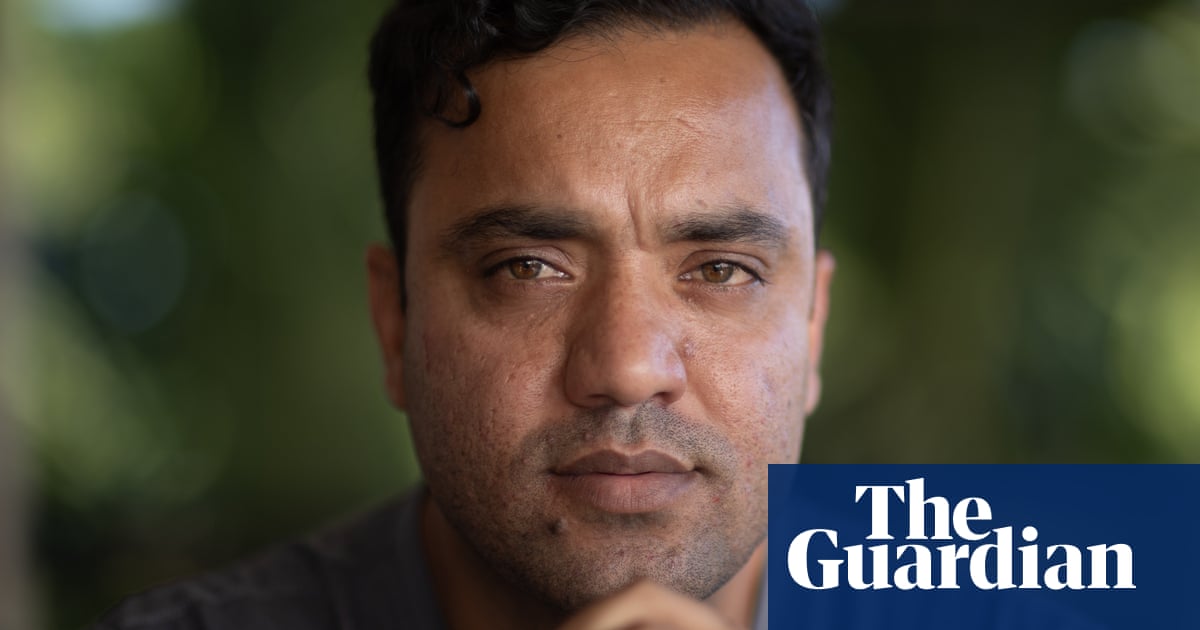“Manus is closed. Detention is over, but we are detained still. We are here still, people are suffering a lot still. Every day we get worse, we are dying a little bit more. But nobody cares about us.”
Here on a dusty hill on the edge of Port Moresby is the ragged, desperate end to Australia’s illegal offshore detention regime inPapua New Guinea.
Samad Abdul was 23 when he arrived in Australia by boat seeking asylum.
He was on one of the first planes to Manus after Kevin Rudd’s 2013 declaration that boat-borne asylum seekers would never settle in Australia. He has been held in PNG ever since, first in theManus Islanddetention centre, then in Lorengau and now in Port Moresby – free to come and go from the hostel where he lives, but not to leave the country.
The persecution he faced in his home in Quetta, Pakistan, has been formally recognised. He has a “well-founded fear of being persecuted” in his homeland. He cannot be returned there and Australia has a legal obligation to protect him.
Abdul is now 35.
“How long should we wait? We need to know a solution,” he says.
There are 16 men housed at this hostel, in the suburb of Five Mile. A similar number are housed elsewhere in the capital. They are the final handful of more than 2,000 who have passed through Australia’s offshore processing regime in PNG.
Many are physically unwell, others carry deep psychological scars – “unable to engage”, in department parlance, in the resettlement interviews that might grant them a future.
Some are wary, even outright hostile, at the presence of outsiders. Mistrust and fear run deep.
Abdul is happy to talk. There is little else he can do. His life, he says, is wasting away. “We do nothing, do nothing all day. We just sit here, wasting our lives.”
Hundreds of refugees once detained on Manus alongside Abdul have since left PNG. They now live in Europe, the US, Canada, New Zealand and Australia.
Abdul is happy for them. But it’s bittersweet.
“We have been so close, we have been through so much together, and then – suddenly – they are gone, gone to their new lives.
“I try to keep in touch with them but it’s hard. After a while, I stop calling. We don’t speak any more. They have started their lives, they are working, they have families, they can travel now. What do I have to say: I am still here. Doing nothing.”
After a series of interviews, Abdul was accepted for resettlement in Canada in 2022, but he’s heard little since.
In 2016, the Papua New Guinea supreme court ruled theManus Island detention centre was illegaland ordered it closed. A year later, the Australian government settled a class action brought by detainees, agreeing to pay $70m in compensation to those it unlawfully incarcerated.
Australia continues to pay to keep the men in Port Moresby, though successive Australian governments have consistently refused to say how much the “confidential bilateral agreements” cost, at one stage telling parliament to reveal details would cause “damage to the international relationsof the commonwealth [of Australia]”. The latest agreement was signed in July last year.
In Senate estimates hearings in February, the Greens senator David Shoebridge pressed home affairs officials for details on the secret deal with PNG: how much Australia was paying, and for what.
“I thinkAustralian taxpayers have a right to knowwhere their money is going and if there is any actual requirement for reporting on it, particularly if it is given to a third country. Are there concerns … about the very real possibility of funds provided by Australia … being directed to unlawful payments and diverted in PNG?”
The home affairs secretary, Stephanie Foster, declined to answer, saying the agreement with PNG was “confidential”, and subject to a public interest immunity claim.
Zaki Haidari, a refugee rights campaigner with Amnesty International Australia, says the handful of men left in PNG are “broken physically and mentally”.
“Their suffering is the direct result of Australia’s inhuman asylum policies, which has caused prolonged and devastating harm.”
He argues Australia remains “morally and legally responsible” for the men it sent into offshore processing.
“It was the Australian government that forcibly transferred them to PNG and outsourced its legal and moral obligations. For over a decade, these men are forced to lived in limbo, separated from their families and loved ones, with no path to settlement, no future and no hope.
“Australia must reckon with the immense human cost of these policies and acknowledge the damage inflicted on these men, who only ever asked for protection.”
In January, the UN Human Rights Committeepublished two decisionsthat stated Australia retained responsibility for the welfare of those it sent into offshore detention on Nauru or elsewhere.
“A state party cannot escape its human rights responsibility when outsourcing asylum processing to another state,” committee member Mahjoub El Haiba said.
“Where there is power or effective control, there is responsibility,” he said.
“The outsourcing of operations does not absolve states of accountability. Offshore detention facilities are not human rights free zones.”
A spokesperson for Australia’s home affairs department said the government of PNG was responsible for the men who remained in PNG.
“The Australian government does not have any role in the ongoing management of, or service delivery arrangements for, individuals remaining in PNG.
“Individuals are encouraged to engage with the PNG Immigration and Citizenship Authority to receive assistance accessing additional supports and to achieve a permanent migration outcome and start the next phase of their lives.”
Questions to PNG’s Immigration and Citizenship Authority went unanswered.
In the oppressive heat of a Port Moresby afternoon, Abdul has questions of his own.
“How long do we wait? What will happen to us? We deserve answers.”
